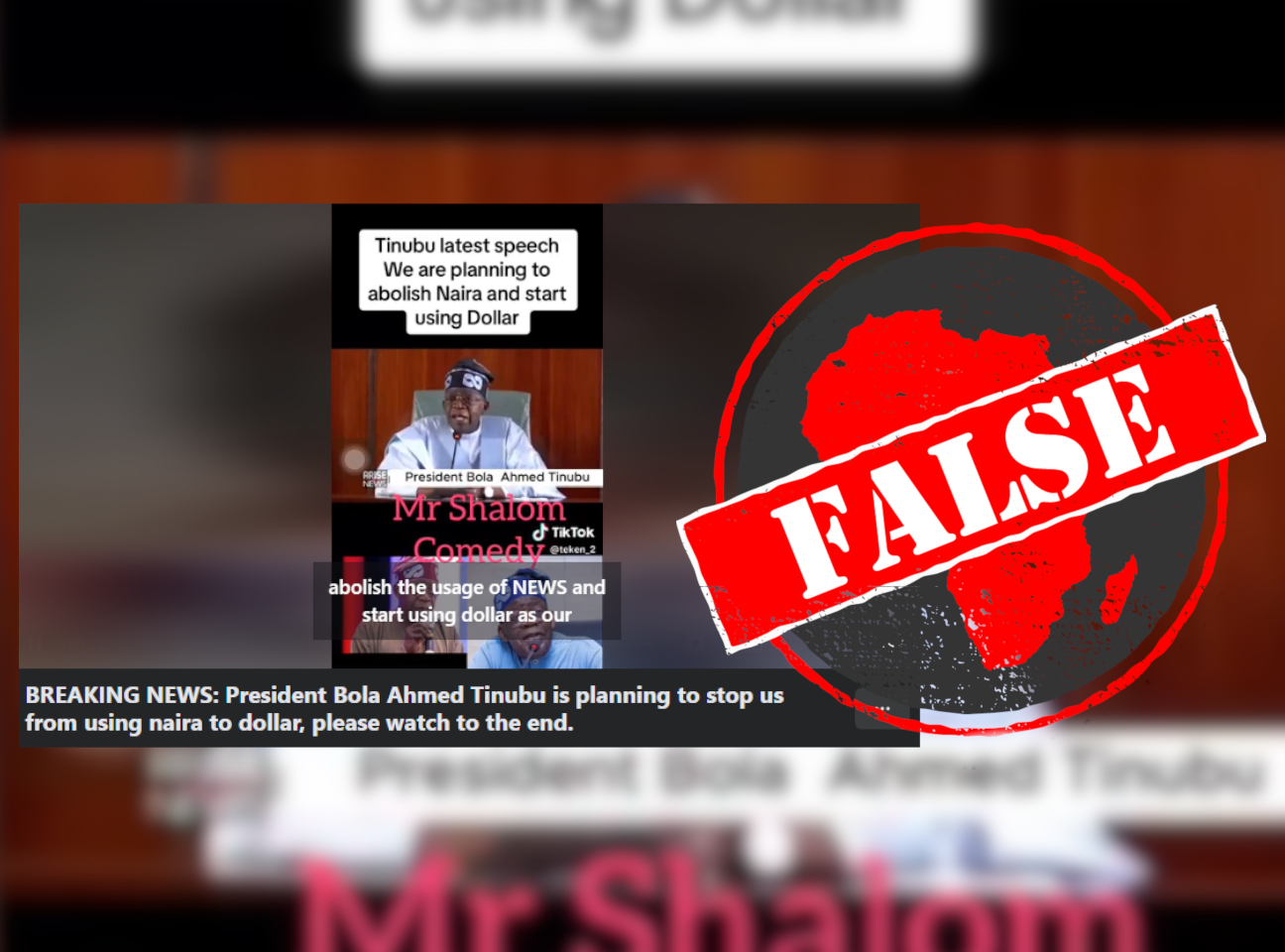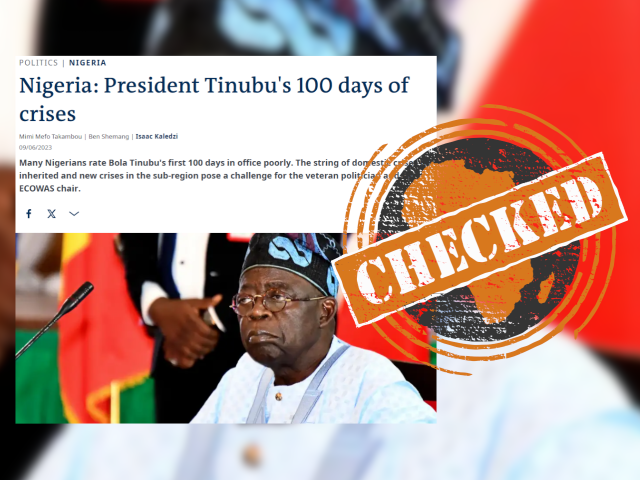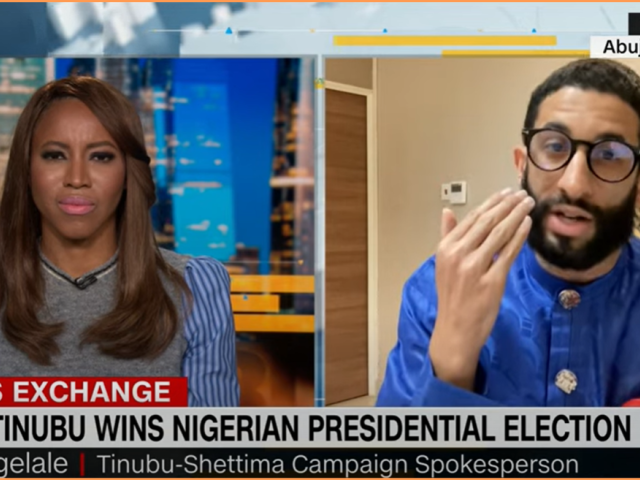IN SHORT: In 2023, Nigeria’s currency faced several crises, from the shortage of the national currency to its drop at the international market. But claims that president Bola Tinubu replaced the naira with the dollar are false.
In 2022, the Nigerian naira was redesigned in an effort to fight counterfeiting and terrorism, leading to a currency shortage crisis in February 2023.
The naira subsequently fell sharply in the international market, and in an effort to stabilise it, president Bola Tinubu unified the exchange rate.
More recently, however, the country's foreign exchange crisis has taken a downturn as the value of the naira continues to fall.
It is in this context that a video is circulating on Facebook in Nigeria with the claim that Tinubu plans to change Nigeria’s currency to dollars.
The video was captioned: “Nigeria planing to abolish the Naira and start using dollars. By President Tinubu. I am just a Messenger, don't kill the Messenger.”
The same claim appeared on Facebook here, here, and here.
But is the video of Tinubu expressing his plans to change the national currency to dollars? We checked.

Viral video doctored
The video includes Arise News presenter Ojy Okpe, but the later part, in which the president says the country will abandon the naira for the dollar, appears to have been digitally altered.
The lips movement of the anchor and that of the president are both out of sync in the video.
Also, Arise News issued a disclaimer on its official X handle (formerly Twitter), it says the video is the“ handiwork of Fake News peddlers,” attached to it is a screenshot from the video stamped with “FAKE”.
The disclaimer reads: “ARISE News totally dissociates itself from a DEEP FAKE VIDEO making the rounds on social media mimicking the What's Trending segment's anchor Ojy Okpe”.
We further found no reports from credible news organisations both local and international about such a statement from the president. It would have made headlines if it were accurate.
Read our guide on how to spot cheap, out-of-context and deepfake videos so you can spot and avoid falling for them.
Republish our content for free
For publishers: what to do if your post is rated false
A fact-checker has rated your Facebook or Instagram post as “false”, “altered”, “partly false” or “missing context”. This could have serious consequences. What do you do?
Click on our guide for the steps you should follow.
Publishers guideAfrica Check teams up with Facebook
Africa Check is a partner in Meta's third-party fact-checking programme to help stop the spread of false information on social media.
The content we rate as “false” will be downgraded on Facebook and Instagram. This means fewer people will see it.
You can also help identify false information on Facebook. This guide explains how.




Add new comment